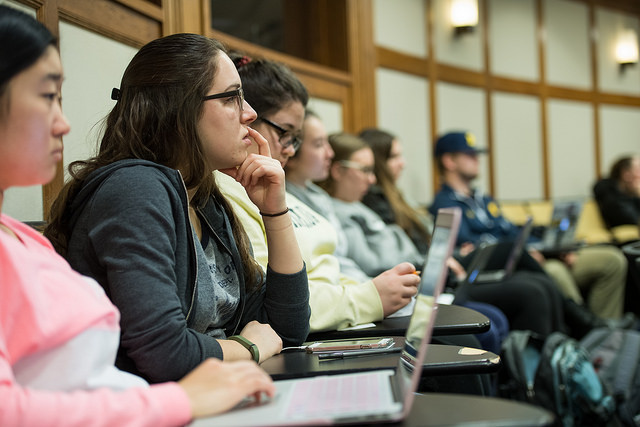
Education Secretary Betsy DeVos recently referred to current campus sexual assault enforcement as a “failed system,” indicating that the Trump administration would work to revoke current guidelines. Two sociology PhD candidates from the University of Michigan, Miriam Gleckman-Krut and Nicole Bedera responded with an op-ed in the New York Times entitled, Who Gets to Define Campus Rape?
Gleckman-Krut and Bedera worry that DeVos’s speech signals a coming change in evidentiary standards for sexual assault cases. During President Obama’s term (both as a result of Department of Education guidance and proactive moves from universities) most institutions shifted the standard of proof in such cases from “beyond a reasonable doubt” to “a preponderance of evidence,” or what the authors define as “more likely than not.” The authors contend that this new standard is central to encouraging survivors to come forward and receive support from their institutions, especially considering the risks to well-being and educational attainment that assault can bring. They write,
“When judging whether someone has been raped, it’s almost impossible to assert that a sex act constituted violence “beyond a reasonable doubt.” Many survivors struggle to produce what campus hearing boards would consider evidence, especially when it comes to acquaintance- or date-based sexual assaults in which alcohol made it impossible for someone to physically resist.”
Gleckman-Krut and Bedera urge the Department of Education to maintain the weaker evidence standard in order to keep campus sexual assault proceedings centered on the survivors, not the accused. Bedera’s research has shown that although college-aged men can articulate their college’s affirmative consent policies, actual practice often does not follow those standards. Gleckman-Klut and Bedera conclude,
“Though they vary, the approximations of how many women have been sexually assaulted in college are always high. That should be the education secretary’s biggest concern.”

Comments 1
At&t Support Number — November 13, 2017
Gleckman-Krut and Bedera urge the Department of Education to maintain the weaker evidence standard in order to keep campus sexual assault proceedings centered on the survivors, not the accused.